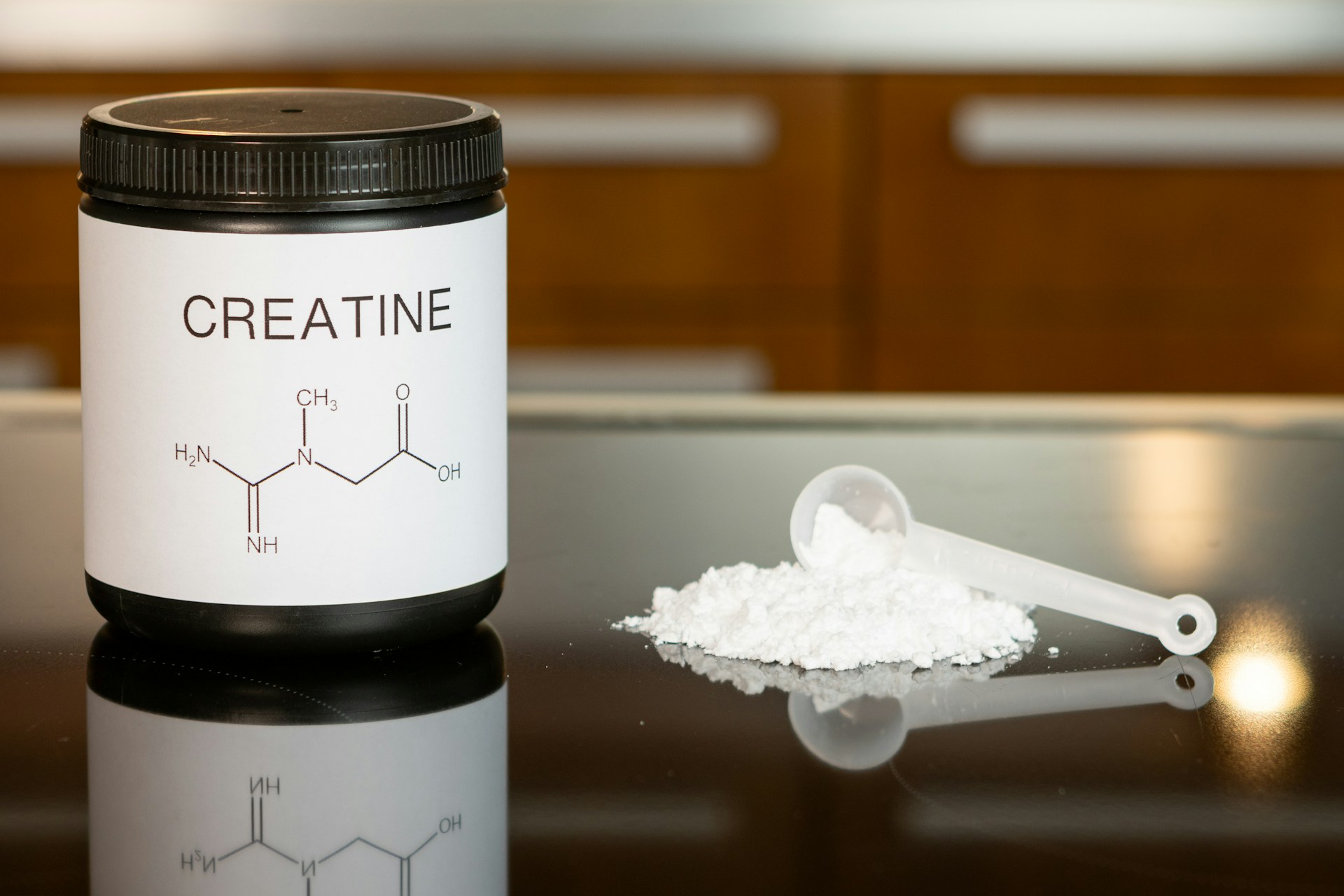
When it comes to supplements, creatine is one of the most studied and widely used, particularly in the fitness and athletic communities. Known for its ability to boost performance, increase strength, and support muscle growth, creatine has earned its reputation as a staple in many athletes ‘and fitness enthusiasts’ routines.
But what exactly is creatine, how does it work, and should you be using it? Let’s dive into the details.
What is Creatine?
Creatine is a naturally occurring compound found in small amounts in certain foods, in red meat and fish, for example. The body primarily produces it in the liver, kidneys, and pancreas. Creatine is stored in the muscles as creatine phosphate and plays a critical role in the production of adenosine triphosphate (ATP), the primary energy source for cellular functions.
How Does Creatine Work?
During high-intensity exercise, our muscles use ATP as their main energy source. However, ATP stores deplete quickly, especially during intense activities like weightlifting, sprinting, or high-intensity interval training (HIIT). This is where creatine comes into play.
When ATP is depleted, creatine phosphate in the muscles donates a phosphate group to ADP (adenosine diphosphate) to quickly regenerate ATP. This process allows us to maintain a higher level of performance during short bursts of intense activity. Essentially, creatine helps your muscles produce more energy, which can lead to better workout performance and greater gains over time.
The Benefits of Creatine Supplementation
1. Increased Strength and Power. Creatine is well-known for its ability to enhance strength and power output. Studies have shown that creatine supplementation can increase strength by up to 10% and power output by up to 20%, making it a favorite among strength athletes and bodybuilders.
2. Enhanced Muscle Growth. Creatine supplementation supports muscle growth through several mechanisms. By allowing you to lift heavier weights and perform more repetitions, creatine helps stimulate greater muscle hypertrophy (growth). Additionally, creatine causes muscle cells to retain water, giving muscles a fuller, more volumized appearance.
3. Improved Exercise Performance. Whether you’re lifting weights, running sprints, or engaging in any high-intensity activity, creatine can help you perform at a higher level. It has been shown to improve overall exercise performance by increasing endurance, reducing fatigue, and enhancing recovery between sets.
4. Cognitive Benefits. While creatine is most commonly associated with physical performance, emerging research suggests that it may also have cognitive benefits. Creatine supports brain health, enhances mental clarity, and improves cognitive function in tasks requiring short-term memory and quick thinking.
5. Support for Aging and Muscle Loss. As we age, we naturally lose muscle mass and strength, a condition known as sarcopenia. Creatine supplementation has been shown to help counteract age-related muscle loss by supporting muscle mass and function in older adults.
How to Use Creatine
People typically consume creatine in the form of creatine monohydrate, which is the most researched and proven form of the supplement. Here’s how to incorporate creatine into your routine:
1.Loading Phase. To saturate your muscles with creatine, you can start with a loading phase, where you take 20 grams of creatine per day (divided into 4 doses) for 5-7 days. This helps quickly elevate creatine levels in your muscles.
2. Maintenance Phase. After the loading phase, you can maintain elevated creatine levels by taking 3-5 grams of creatine per day. This phase can be continued indefinitely, as creatine is safe for long-term use.
3. Timing. While the timing of creatine intake is not critical, taking it post-workout with a source of carbohydrates can enhance its uptake into the muscles. Some people also prefer to take it before their workout.
4. Hydration. Creatine causes muscle cells to draw in more water, so it’s essential to stay well-hydrated while using the supplement to avoid dehydration.
Myths and Misconceptions About Creatine
Many people often surround creatine with myths and misconceptions, despite its proven benefits.. Let’s clear up a few common ones:
– Myth: Creatine is a Steroid. Creatine is not a steroid. It is a natural substance found in foods and produced by the body. It is completely legal and safe for use.
– Myth: Creatine Causes Kidney Damage. Extensive research has shown that creatine is safe for long-term use in healthy individuals. However, those with pre-existing kidney conditions should consult a doctor before using creatine.
– Myth: Creatine Leads to Weight Gain: While creatine can cause an increase in water retention within muscle cells, this is not the same as fat gain. The weight gain associated with creatine is typically due to increased muscle mass and water retention, both of which are beneficial for performance and aesthetics.
Conclusion: Is Creatine Right for You?
Creatine is one of the most effective and well-researched supplements available, offering significant benefits for strength, power, muscle growth, and even cognitive function. Whether you’re a seasoned athlete looking to maximize performance or someone new to fitness wanting to enhance your results, creatine could be a valuable addition to your supplement regimen.
As with any supplement, it’s important to use creatine responsibly and consult with a healthcare provider if you have any underlying health conditions. When used correctly, creatine can help you reach your fitness goals and support your overall health.



